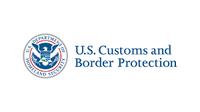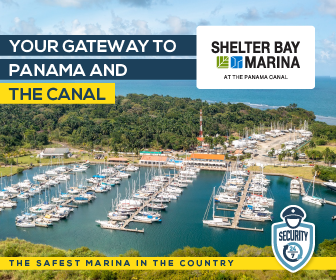Florida, USA: Arriving in Ft. Lauderdale from overseas
First-time arrivals to the USA can be nerve-wracking due to the uncertainty of how the clearance process functions: it is undoubtedly different from many other countries. This is one cruiser’s experience with their arrival and some of the problems they faced. See suggestions from the noonsite team throughout the report as to how to work around what may appear unnecessarily complicated rules.
Published 7 years ago, updated 5 years ago
Report from Deidre Mace, SV Meshugga
Calling Customs on Arrival
Arriving from overseas without a local SIM card posed a huge problem as the 

Foreign Yachts MUST telephone Customs to report arrival. +1 (800) 432-1216
(NOTE FROM NOONSITE: This phone number is, indeed, the toll-free number for Small Vessel Reporting System in Florida; however, this is an automated system and is primarily designed for local boaters who make regular trips to and from foreign ports and would like to expedite their arrivals. Foreign vessels arriving at the USA for the first time should call directly to the local Customs and Border Protection field office – the phone number can be found on their website or listed in the respective Clearance Section on Noonsite. In the case of Ft. Lauderdale’s CBP field office, the number is +1 (954) 761-2000. It is not a toll-free number, not an automated system, and wait times are normally only a few minutes during regular business hours.)
After depleting our Tracphone KvH monthly contract allowance on hold for Customs we decided to taxi to Customs to clear-in, in person. We were promptly told by Immigration and Customs to leave, telephone in, and then come back once we had obtained our Arrival Reference Number.
So our advice is: if you are a foreign yacht, arriving in the USA, Ft. Lauderdale for the first time, and without any local communication, go to the nearest local T-Mobile or similar and purchase a SIM Card. Make the call to Customs and then go directly to Immigration and Customs by road. Customs is not near the water and cannot be reached by yacht or tender. Once armed with a short-term Prepaid card you can call Customs and report your arrival.
(NOTE FROM NOONSITE: We do not advise this course of action, because it is technically illegal to do so. Do not leave your yacht prior to being instructed by USA Customs and Border Protection that you have permission to do so. Doing so may result in fines, imprisonment, or deportation.)
Uber to Customs will cost around $8, local taxi around $17, or you can bicycle there: a flat ride of about 20-30 mins. To use Uber you will need to update your Uber Profile to your new local USA mobile number before being able to hail a cab.
You can cycle on pavements and road without helmets.
Yellow Taxi phone: 954 7777
Customs and Immigration are at 1800 Eller Street, Fort Lauderdale.
Note that Customs requires you to present your ORIGINAL Yacht Registration Certificate. Duplicates, whether certified or not, are not acceptable. (They will send you away to go fetch the Original). Visiting Customs in person MUST be done within 48 hours of arrival into USA waters.
Immigration must be visited first, and all crew must be present. There are no Immigration fees.
Only the Captain must visit Customs in person. Sign the clipboard, which is at one of the Customs windows. The Captain will be called and taken to an interview room. The procedure takes about 30 minutes.
Customs and Immigration are in the same building.
Cruising Permit
Customs can grant a permit of up to 1 year. If not staying in the USA for a full year, ask for the number of months you need. Once your annual permit expires you MUST leave the states, enter another country, and have at least 15 days from the arrival stamp in the other country, before re-entering the USA. You cannot extend the 1-year permit without extenuating circumstances. With a permit of a few months, on arrival back into the States, they merely reinstate the same permit, a much quicker procedure, and the 15 day period does not apply. The permit can be extended up to 1 year if your plans change. Customs accept credit cards for payment of the $19 arrival form fee.
Ask Customs to specify your Yacht AND Tender on the cruising permit. Water Police want ANY tender which is in Florida waters more than 90 days to be registered in Florida, which poses a huge logistical problem for Cruisers. The only way around this issue is to have your cruising permit endorsed for your tender as well.
All other laws are normal as for any foreign country visited.
Remember to ensure your dingy is equipped with all safety gear. The Police who love to stop and check dinghies for compliance. Also, watch your dingy speed: they are very happy to find you $90 for ‘speeding’ as the waterways are mostly No Wake zones.
From: Deidre Mace, SV Meshugga
NOTE FROM NOONSITE:
Arrival into the USA can seem confusing at first when the rule seems to be that you cannot leave the boat until checking-in, but you have to check in by physically going to US Customs and Border Protection (CBP), which is located near the cruise terminal and airport. SV Meshugga also mentions depleting their satphone minutes while on hold with USA Customs/Immigration. There is a simple course of action for these apparent contradictions:
The typical way to handle this situation when arriving at Ft. Lauderdale is to stop at one of the many marinas for a brief stay, perhaps a few hours. The skipper may go ashore and call the CBP to receive their Arrival Reference Number. Marinas in Ft. Lauderdale handles international arrivals all the time and most will be more than willing to assist, even if you aren’t staying there for an overnight. For this reason, some may charge an hourly dockage fee rather than a full overnight stay. One of the common locations does this check-in procedure is Lauderdale Marina, which has a prominent fuel dock just north of Port Everglades. Many boaters make the initial call to the US Customs and Border Protection from this dock; then, armed with their Arrival Reference Number and permission to do so, they proceed elsewhere before taking the taxi to the CBP field office for final check-in. Other marinas even have concierge check-in, such as Bahia Mar or Hall of Fame Marina.
The US Customs and Border Protection lists their field office numbers at this official website. None of the numbers for first-time foreign arrivals are toll-free numbers (i.e., 800-numbers) as it would be unreasonable to expect foreign boaters to have a local phone capable of making a toll-free call. The 800-numbers are for local boaters who make regular foreign trips and are members of the local boating schemes.
Please be aware, that it is illegal to go ashore prior to being released to do so by the CBP. They will be very clear about telling you whether you have permission to leave the yacht or not.
See our USA Formalities page for further information.
Related content
Related to following destinations: Florida, Fort Lauderdale, USA



